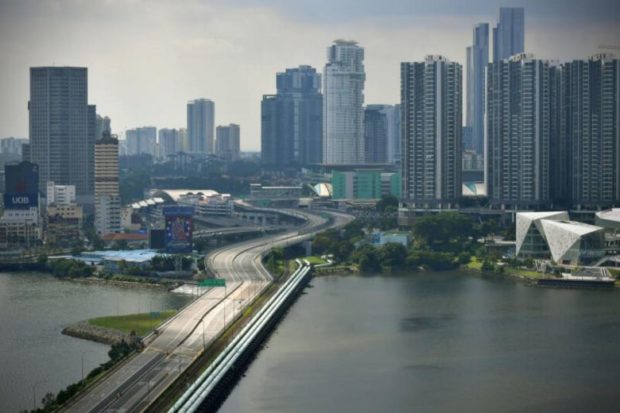
The Reciprocal Green Lane between the two countries will enable cross-border travel for essential business and official purposes. The Straits Times/Asia News Network
JOHOR BARU — News about the reopening of the Malaysia and Singapore border beginning Aug 10 has been received with sighs of relief from citizens of both countries.
However, many have expressed concern about the imposition of a three-month stay in Singapore during each trip for those holding long-term immigration passes for business and work.
The people are also hoping that both sides will implement clear and practical standard operating procedures (SOPs) to avoid issues at the two border crossings of the Causeway and the Second Link.
Johor Indian Business Association (Jiba) president P. Sivakumar said the reopening of the border was good news as not only would it allow local businesses to survive but also provide employment security for Malaysians working in Singapore.
“Local businesses, especially those in Johor Baru, rely heavily on Singaporean customers to thrive and many are now on the verge of closing down due to the border closure.
“The reopening of the borders is very much welcomed, but it must be done carefully and people need to strictly abide by the SOP to ensure their own safety,” he said in an interview.
However, Mr Sivakumar said the requirement where Malaysians who worked in Singapore were allowed to enter the country for short-term home leave only after three months of working in the island republic was “unnecessary”.
“Mobility is important and such a requirement should not be included in the reopening.
“The focus should instead be on people adhering to the SOP, including contact tracing,” he added.
The many Malaysians currently in Singapore for work were already finding it difficult to cope with the cost of living in the island republic, he said.
“The reopening of the borders would not bring much difference to those working in Singapore if they are only allowed a short visit and then have to be stranded again for three months,” he said.
Meanwhile, assistant chemist Eddie Manoah, 25, who has been stuck in Singapore since March, said that he was shocked over the requirement that he should remain working in Singapore for three months before being allowed to enter Malaysia for a short visit.
“I expected the borders to open up entirely for work pass holders.
“Those staying in Singapore will have to stay longer there. It is going to be difficult for us to cover our expenses and pay off our debts,” he said.
Mr Manoah said that he has been sharing a room at a hostel with other working Malaysians for about S$600 a month since the border closure.
“It is possible to get a place to stay for a short period of time but the cost is high and it could also be difficult to find as most rental options would require two months of deposit and a minimum rental period of at least half a year.
“Those who own a house in Johor Baru and are paying for it have to cope with paying the monthly installments, and also rent in Singapore,” he added.
A Singaporean businessman who wanted to be only known as Mr Tay, 52, said the border reopening was timely as he was eager to check on his investments, especially properties in Iskandar Malaysia.
“I also have a factory here and I have only been checking in with my local managers online,” he said.
Mr Tay hoped that Malaysia and Singapore would have a common SOP when it came to Covid-19 checks as he was worried that the Malaysian authorities might have SOPs that differ from Singapore’s.
Earlier, in a joint statement by Foreign Minister Hishammuddin Hussein and his Singaporean counterpart Vivian Balakrishnan, they announced that both governments had agreed to implement the Reciprocal Green Lane (RGL) and Periodic Commuting Arrangement.
They said the RGL would enable cross-border travel for essential business and official purposes between both countries.